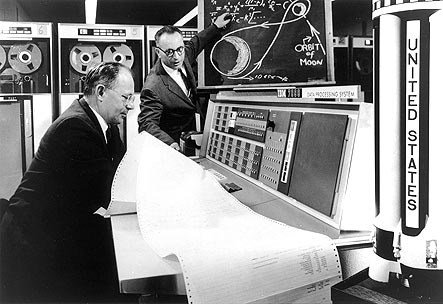Haven’t yet gotten my stinking paws on Sandy Pentland’s new book, Social Physics: How Social Networks Can Make Us Smarter, but the Nicholas Carr critique in Technology Review is instructive even if you possess no prior knowledge of the computer scientist’s vision for the future.
A society all watched over by machines of loving grace seems implausible to me, whether we’re talking about totalitarian states or democratic ones. The former will use sensors and chips to monitor and manipulate behavior—and so will the latter, actually. And the distance from a nudge to a shove is shorter than we may accept.
The supposed virtue of Big Data is that it can possibly view behavior and justice without prejudice, except that it’s programmed by humans who possess those preconceived notions. As Carr explains, a further failing is that skimming the surface of society for information to engineer the populace pays no mind to historical context, so it can be a feedback loop rather than a corrective. To be succinct: It lacks the depth of the past and an understanding of the very nature of being human.
An excerpt:
Ultimately, Pentland argues, looking at people’s interactions through a mathematical lens will free us of time-worn notions about class and class struggle. Political and economic classes, he contends, are “oversimplified stereotypes of a fluid and overlapping matrix of peer groups.” Peer groups, unlike classes, are defined by “shared norms” rather than just “standard features such as income” or “their relationship to the means of production.” Armed with exhaustive information about individuals’ habits and associations, civic planners will be able to trace the full flow of influences that shape personal behavior. Abandoning general categories like “rich” and “poor” or “haves” and “have-nots,” we’ll be able to understand people as individuals—even if those individuals are no more than the sums of all the peer pressures and other social influences that affect them.
Replacing politics with programming might sound appealing, particularly given Washington’s paralysis. But there are good reasons to be nervous about this sort of social engineering. Most obvious are the privacy concerns raised by collecting ever more intimate personal information. Pentland anticipates such criticisms by arguing for a “New Deal on Data” that gives people direct control over the information collected about them. It’s hard, though, to imagine Internet companies agreeing to give up ownership of the behavioral information that is crucial to their competitive advantage.
Even if we assume that the privacy issues can be resolved, the idea of what Pentland calls a “data-driven society” remains problematic. Social physics is a variation on the theory of behavioralism that found favor in McLuhan’s day, and it suffers from the same limitations that doomed its predecessor. Defining social relations as a pattern of stimulus and response makes the math easier, but it ignores the deep, structural sources of social ills. Pentland may be right that our behavior is determined largely by social norms and the influences of our peers, but what he fails to see is that those norms and influences are themselves shaped by history, politics, and economics, not to mention power and prejudice. People don’t have complete freedom in choosing their peer groups. Their choices are constrained by where they live, where they come from, how much money they have, and what they look like. A statistical model of society that ignores issues of class, that takes patterns of influence as givens rather than as historical contingencies, will tend to perpetuate existing social structures and dynamics. It will encourage us to optimize the status quo rather than challenge it.
Politics is messy because society is messy, not the other way around.•


